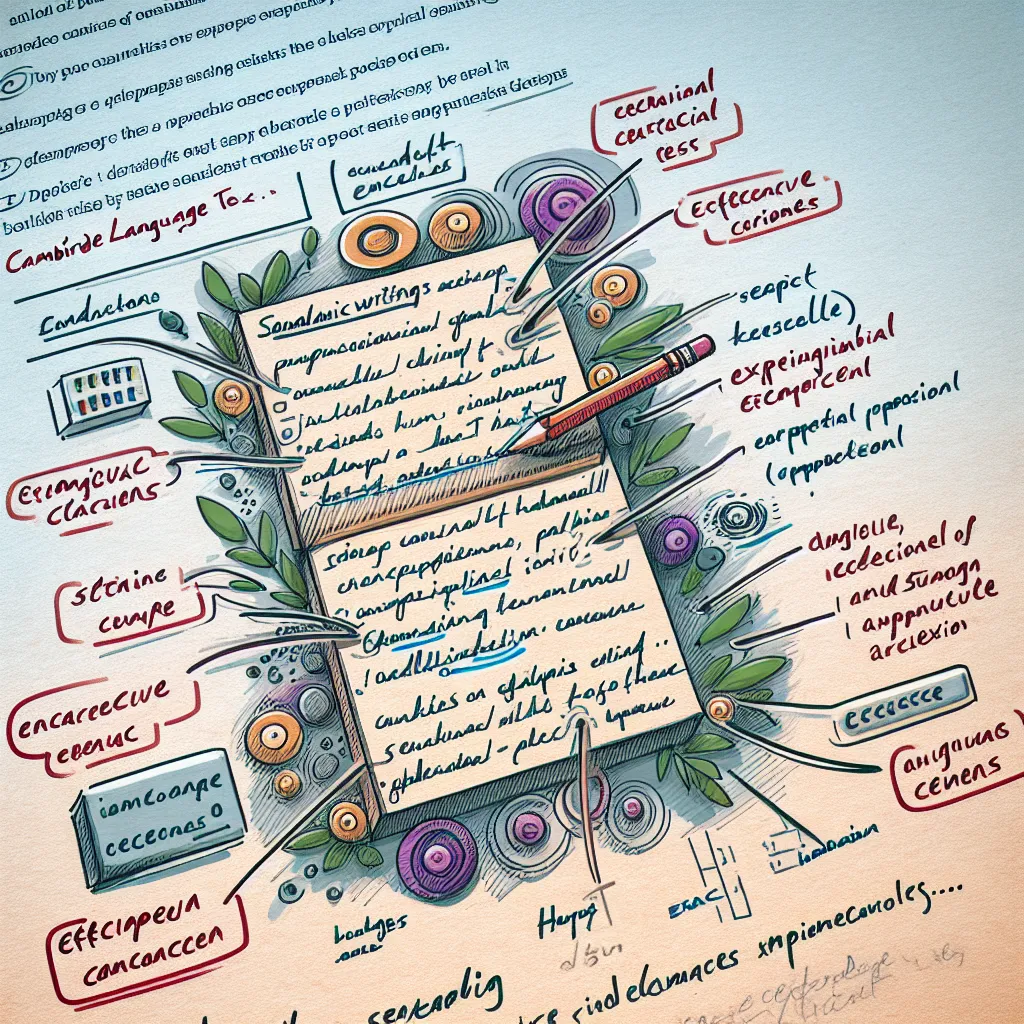Are you preparing for a Cambridge English exam and wondering how to improve your writing skills from the comfort of your home? Look no further! This comprehensive guide will walk you through effective strategies and practical tips to enhance your Cambridge Writing skills without leaving your house.
Understanding Cambridge Writing Exams
Before diving into practice techniques, it’s crucial to understand what Cambridge Writing exams entail. These exams assess your ability to produce clear, well-structured written English across various formats, such as essays, reports, reviews, and letters.
 Cambridge Writing Exam
Cambridge Writing Exam
Key Components of Cambridge Writing Tasks
- Task Achievement
- Coherence and Cohesion
- Lexical Resource
- Grammatical Range and Accuracy
Understanding these components will help you focus your practice efforts effectively.
Creating a Home Study Environment
To practice Cambridge Writing at home successfully, you need to create an environment conducive to learning and concentration.
Set Up a Dedicated Study Space
Choose a quiet area in your home where you can focus without distractions. Ensure you have a comfortable chair, a sturdy desk, and good lighting.
Gather Necessary Materials
Collect all the resources you’ll need:
- Cambridge Writing practice books
- English dictionary and thesaurus
- Writing paper or a notebook
- Pens and highlighters
Effective Strategies for Home Practice
Now that you’re set up, let’s explore some effective strategies to improve your Cambridge Writing skills at home.
1. Familiarize Yourself with Exam Formats
Start by reviewing past papers and sample questions to understand the types of writing tasks you’ll encounter. This will help you tailor your practice accordingly.
2. Create a Study Schedule
Develop a consistent study routine. Allocate specific times for writing practice, ensuring you cover all types of tasks regularly.
3. Use Official Cambridge Resources
Invest in official Cambridge preparation materials. These resources are designed to match the exam format and difficulty level accurately.
[internal_links]
4. Practice Timed Writing
Train yourself to write within the time constraints of the exam. Use a timer during your practice sessions to improve your speed and efficiency.
5. Analyze Model Answers
Study high-scoring sample answers to understand what examiners are looking for. Pay attention to structure, language use, and task achievement.
Practical Writing Exercises
Here are some practical exercises you can do at home to enhance your Cambridge Writing skills:
1. Daily Journal Writing
Spend 15-20 minutes each day writing about your thoughts, experiences, or opinions on various topics. This helps improve your fluency and vocabulary.
2. Essay Outlining Practice
Regularly practice creating outlines for different essay topics. This improves your ability to structure your thoughts quickly and coherently.
3. Paraphrasing Exercises
Take passages from English books or articles and practice rewriting them in your own words. This enhances your ability to express ideas using different language structures.
4. Peer Review Sessions
If possible, connect with other Cambridge exam candidates online and exchange written work for peer review. This provides valuable feedback and exposes you to different writing styles.
Using Technology for Writing Practice
Leverage technology to enhance your home practice sessions:
1. Online Writing Tools
Use grammar checkers and writing analysis tools to identify areas for improvement in your writing.
2. Virtual Writing Workshops
Participate in online writing workshops or webinars focused on Cambridge exam preparation.
3. Mobile Apps
Download Cambridge-specific writing practice apps for on-the-go learning and quick practice sessions.
Common Mistakes to Avoid
Be aware of these common pitfalls when practicing Cambridge Writing at home:
- Neglecting planning time
- Overusing complex vocabulary inappropriately
- Ignoring word count limits
- Failing to proofread your work
Next Steps in Your Cambridge Writing Journey
After implementing these strategies and exercises:
- Take regular practice tests to gauge your progress
- Seek feedback from English teachers or tutors
- Join online Cambridge exam preparation forums for additional support and resources
Remember, consistent practice is key to improving your Cambridge Writing skills. Stay motivated, track your progress, and celebrate your improvements along the way.
By following this comprehensive guide, you’ll be well-equipped to practice Cambridge Writing effectively at home. Good luck with your preparation, and may your writing skills soar to new heights!




